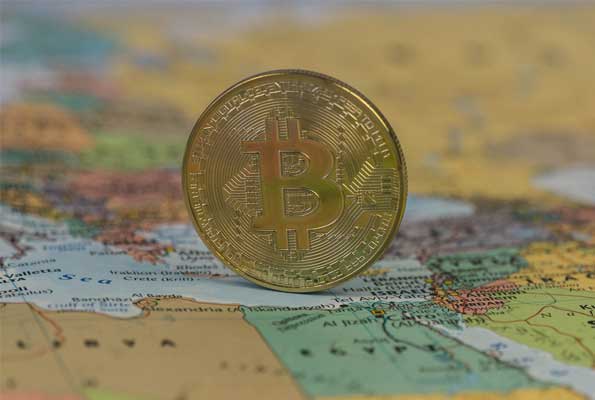Analysts claim that the fight between Israel and Hamas has moved to a new front: cryptocurrency. In recent days, US and Israeli officials have stepped up their financial investigation against Hamas as they pursue money laundering using digital currencies.
As a result, there is currently less crypto transfer activity on pro-Hamas support networks, according to Ari Redbord, worldwide policy head at crypto tracking expert TRM Labs.
“Since the war started, we have seen a lot less activity in certain areas,” Redbord stated to the AFP.
He said, “Israel has been very aggressive and successful in taking down these fundraising efforts,” which is the main reason for this.
According to Israeli authorities, on October 7, Hamas militants launched an unprecedented cross-border offencive on Gaza, killing over 1,400 people. In retaliation, Israel attacked Gaza.
The health ministry operated by Hamas reports that over 6,500 Palestinians have died in Gaza as a result of Israeli bombardment. And the tally is going up further.
Stringent Regulation
On Binance, one of the biggest cryptocurrency exchanges in the world, more than 100 accounts have been closed, and details on another 200 accounts are being investigated.
According to a Financial Times storey, Tom Alexandrovich of the Israel National Cyber Directorate expressed worries about the growing usage of cryptocurrencies for financing radical elements during hostilities.
Binance has barred multiple accounts by international sanctions regulations, and Tether, a well-known stablecoin, has frozen 32 addresses connected to radical elements in Israel and Ukraine.
Since October 7, Israeli police have identified about 150 Hamas-related contribution schemes. Many of these activities have been publicised on social media. An unnamed Binance staff member revealed the challenges the business has monitoring client exposure to these contribution addresses.
The Commodities Futures Trading Commission (CFTC), a US regulator, had previously linked Binance to Hamas transactions. The Financial Stability Board, which is presently creating a framework to address terrorist financing in cryptocurrency assets, and Israeli Defence Minister Yoav Gallant both emphasised the difficulties of countering digital terror financing.
Elliptic, an analytics business, noticed that dubious organisations in the Middle East often exchange cryptocurrency for national currencies before turning it around. This information was made public when Israeli authorities, with the help of the public and a volunteer task force, were already keeping an eye on suspected cryptocurrency accounts connected to radical elements.
These actions show how efforts around the world are intensifying to stop the use of cryptocurrencies for illegal purposes. Global authorities continue to place a high premium on the task of ensuring the safe and lawful usage of digital currencies as they become increasingly ingrained in our financial systems.
A Shadowy World
Compared to typical bank transfers, cryptocurrency is thought to be a quicker, less traceable and uncontrolled means of transferring money.
Because of its allure for covert transactions, the dark realm of digital units—which is founded on decentralised blockchain technology—has become well-known for illegal transactions.
Israeli police have already frozen Hamas-affiliated accounts on Binance, the largest cryptocurrency exchange in the world, that were intended “to solicit donations on social networks.”
“Following internationally recognised sanctions rules, we are blocking the small number of accounts linked to illicit funds,” a Binance spokesman stated.
Former senior US government advisor Redbord claimed that Hamas had started using cryptocurrency by 2019, at the latest, to raise money using its own website as well as the Telegram messaging app.
Because of heightened international monitoring of the largest digital currency in the world, Hamas declared in April 2023 that it would no longer accept Bitcoin payments in cash.
Fundraising for cryptocurrency is now done through a network of support groups connected to Hamas.
Since the beginning of the battle, TRM Labs has kept a tight eye on virtual cryptocurrency wallets connected to these kinds of support groups.
And the conclusion is that significantly less cash is being moved than is customary.
Less than USD 6,000 was received by the assistance group Gaza Now in one of its cryptocurrency wallets two weeks following the bombings, according to Redbord.
In contrast, the wallet has received USD 800,000 in total since its formation in August 2021.
Authorities are cognisant of the fact that digital assets represent a small portion of a larger, intricate financial picture.
According to estimates from the US State Department, Iran gives USD 100 million annually to Palestinian organisations, including Hamas.
A Little Piece Of The Puzzle
According to Redbord, “Cryptocurrency is a very small piece of a larger financing puzzle for Hamas.”
“They have a network of charitable organisations and a diaspora of supporters who are sending donations, not in cryptocurrency. They are also looking to Iran and imposing taxes on the Palestinians,” he stated further, while adding, “but cryptocurrency does play a role.”
Cryptocurrencies continue to be a major source of income for Hamas and its allies.
BitOK, an Israeli analytics and software company, reports that between August 2020 and July 2023, cryptocurrency addresses connected to Hamas that Israel has identified collected almost USD 41 million.
It further states that other cryptocurrency addresses connected to Islamic Jihad collected more than USD 154 million between October 2022 and September 2023, with some of them still being operational.
Some industry participants choose to ignore the situation.
Industry analyst Joby Carpenter stated, “Some cryptoasset businesses are unintentionally or purposely allowing misuse of the crypto ecosystem. Where exchanges are based in lightly or an unregulated jurisdiction, this trend is magnified.”



